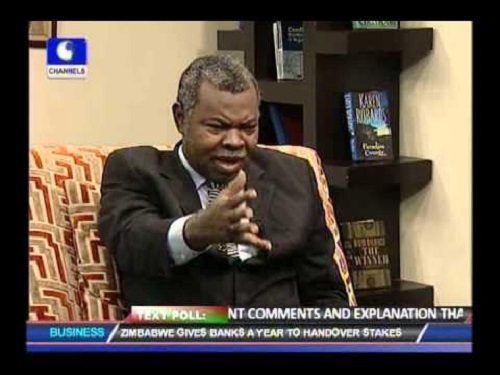This post has already been read 1519 times!
Ayo Olukotun
Nigerians in these vulnerable and harsh times trudge on like a species of humanity sentenced to lifelong imprisonment with hard labour. To grasp this scenario, you must have some familiarity with Yoruba mythic literature illustrated by Daniel Fagunwa’s book entitled, My Journey in a Forest of a Thousand Daemons. These were journeys without maps, without known destinations, full of dread and uncertainties. In like manner, Nigerians are not sure if the 2023 elections will hold or not, neither are they certain about when their wards will graduate from our strike-ridden universities, a consequence of an anti-intellectual temperament in official quarters. They are not sure they will have electricity in view of the serial collapse of the national grid. They don’t know if the journey they are about to commence will land them in the tragic company of kidnappers.
Listen to government officials and top politicians relate to this downturn and you will hear something like, “The whole world is going through hard times and Nigeria is no exception.” Of course, this is half-truth, which glosses over the intensity of the plight and pathos of the average Nigerian, many of whom can no longer cope. They also will not tell you what many other governments, who respect the social contract, are doing to cushion the shock. Very few governments, if any, will sidestep a strike by university teachers and administrators which is about to enter into the ninth week in the case of the Academic Staff Union of Universities.
Speaking on Sunrise Daily, Channels Television, on Wednesday, the National President of ASUU, Prof Emmanuel Osodeke, revealed that very little has happened since his union declared a warning strike in February. Contrast this to the enthusiasm with which many political players, presumably with deep pockets, are putting themselves forward for the Office of the President. As far as I can remember, none of these aspirants has spoken about the ASUU strike or the abysmal neglect of human resources in Nigeria, which would have given us hope that the tide will turn once they get to power. The prevalent attitudes regarding the strike are to blame the victims, ventilate one’s frustrations on striking lecturers or harvest entertainment value from it as in the case of the banters that accompanied the issue of Divine Ikubor aka Rema.
The truth, which the politicians will rather not confront, is that there are fundamental issues at stake: The backwater position of Nigeria in the global knowledge map, the virtual collapse of education, the continued migration of Nigerian youths whose parents can afford it to overseas universities and the mortgaging of the future of Nigeria to hegemonic interests and to countries which have the good sense to build a knowledge economy and prioritise innovation, thereby, fast-forwarding their places in the Fourth Industrial Revolution.
We have often heard it said that Nigeria is a commercial proposition, a market rather than a nation with unifying ideals. What is less noticed is that even markets ought to have ground rules in order to flourish, otherwise they may descend into trading jungles. Recall that the late Professor Claude Ake, referring to Nigeria, employed the words ‘booty capitalism’, suggesting that very few rules are adhered to in our market culture. That is partly the reason politicians who have stashed away resources send their wards abroad but feign ignorance when the lots of the children and wards of the average Nigerian who attend the stranded public universities are discussed. If Nigeria is indeed a proper market, the political elite will be interested in the conditions and factors for the sustenance of that market.
The story was told that one of the reasons former President Umar Yar’Adua approved the FG-ASUU agreement of 2009 was because of a riveting anecdote told by one of the participants explaining that the state of Nigerian science laboratories is worse than what once obtained in many of our secondary schools including Government College, Keffi, which the late president attended. A graduate of Education and Chemistry from Ahmadu Bello University, Yar’Adua, reportedly stood up and said something to the effect that if matters had degenerated so alarmingly, the government has a duty to do all it could to restore our prostrate ivory towers. Thirteen years later, a Needs Assessment Panel, which confirmed the state of decay of our universities and token efforts at redemption by successive governments, noted that the picture of desolate intellectual centres painted in 2009 remains largely unchanged. Instead of overhauling the centres of learning, governments have continued to multiply the universities without attention to planning, resources or the need to uplift the percentage of budgetary allocation to education which has stood still at roughly 7 per cent.
If the 2023 election, whose fate is dangling precariously in view of insecurity, eventually holds, the electorate must hold politicians down to minimum requirements of educational rehabilitation. The reason there is a riot of presidential aspirants is that the political tribe can get away with almost anything because they are not accountable to the electorate.
Civil society should rise up to reclaim its mandate as the epicentre of Nigeria’s democratic assumption.



